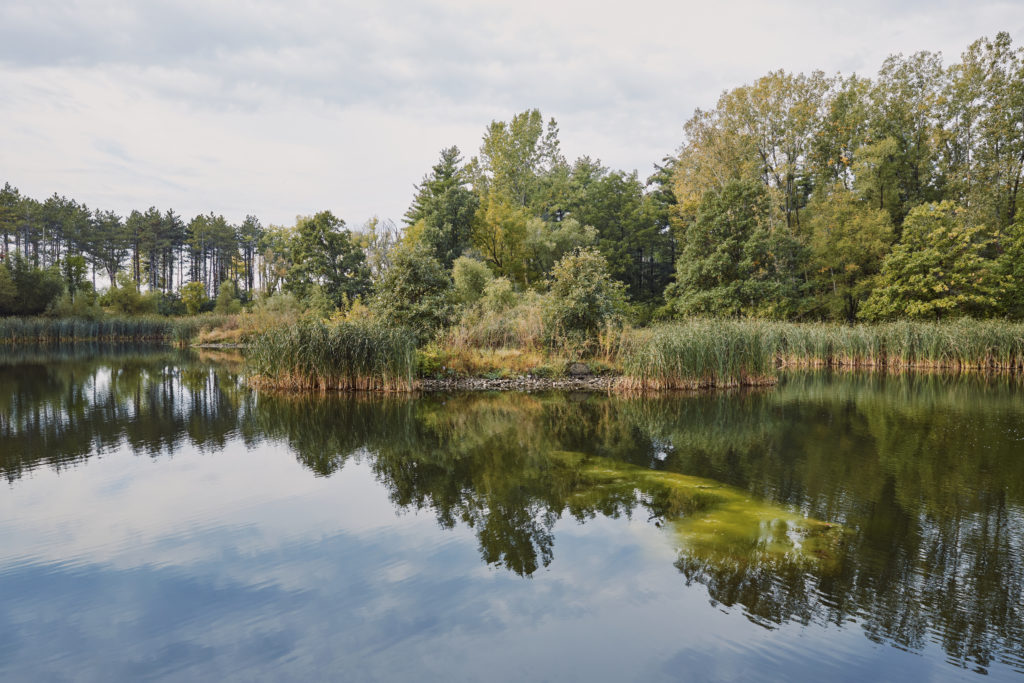The Business Case for Conservation

Milton Friedman’s declaration that, “The social responsibility of business is to increase profits” influenced corporate leadership for generations. In a free market economy, this statement may seem like a given, if not a north star, pointing the direction forward whether you’re leading a small tech startup or massive manufacturing firm. However, what Friedman couldn’t anticipate is a highly-connected world post-globalization. His proclamation rang true when bottom line profitability occurred in a vacuum, but not anymore. In 1970, you stood out because of what you did or produced, in 2024, you stand out for who you are.
Increasingly, the measure of profit isn’t just a static, two-dimensional internal forecast. It’s a more nuanced effect, influenced by investors, shareholders, clients, customers and employees. With a workforce and consumer pool primarily comprised of millennials — and younger — facing major collective issues including climate change, another performance indicator, outside of just conventional dollars and cents, is becoming a guiding principle. Value-driven leadership.
More than just a balance sheet or an earnings report, those functioning within the modern-day business sector are attributing success, and increased profits, higher employee retention, or improved risk management, to value-driven leadership. And it’s not just anecdotal.
- 71% of younger workers plan to stay at an organization long-term if they know what it stands for in terms of values (Gallup, 2016).
- 76% of consumers say they will stop buying from companies that treat the environment, employees, or community in which they operate poorly (PwC, 2021).
- 81% of sustainable indexes and portfolios outperformed their benchmarks (Net Positive, 2021).
The secret sauce for activating purpose, engaging stakeholders, and making an impact? Values. Research and application have proven time and time again that principles and standards aren’t just a fanciful addition, they are a foundational necessity. This sort of strategy can seem aspirational, but business case after business case demonstrates that it works. And, if you’re going to lead with your values, then you can’t do it alone.
If by chance you’re already familiar with the Great Outdoors Foundation (GOF), then you probably associate us with one of the many quality of life initiatives we’ve been a part of — ICON Water Trails, the Polk County Water & Land Legacy Bond, and Athene Pedestrian Bridge, to name a few. For more than twenty-five years, GOF has served as a leader in fundraising and development for large outdoor recreation and conservation projects. Our influence and success is undoubtedly due to our partnerships with value driven investors.
We’ve heard time and time again from both individuals and corporations: I want to make an impact. That’s where our newest enterprise, the Conservation Fund, comes in.
The Conservation Fund is an investment opportunity; it’s not a capital campaign. By matching value-driven private donors with expertly-selected environmental investment opportunities, the Conservation Fund effectively fills match fund requirements to activate high-impact results, not only here in our region, but up and downstream of our watershed. This multiplying effect makes our private dollars go even further and create even greater change, as all Conservation Fund projects guarantee at least a 4:1 public to private match.
By supporting the Conservation Fund, you, or your organization, are entrusting us to direct your capital into the highest impact on investment initiatives on an ongoing basis. The Conservation Fund’s creative method to capital stacking takes private investments — valuable on their own — and multiplies the dollars by meeting match requirements to unlock public dollars. This allows partner organizations to leverage existing funding to enact massive change.
I’ll leave you with a poignant case study that highlights the value-driven leadership of our partners at Athene USA. More than two years ago, the team at Athene began strategizing how they could maximize their corporate impact through an investment in water quality. After connecting with the Great Outdoors Foundation, they landed on utilizing $1 million from their corporate sustainability funds to implement water quality best practices within ICON Water Trails’ infrastructure.
What’s most exciting about Athene’s investment, and others like it, is that it has enabled an additional $80+ million in public funding at the local, state, and federal level for water quality adjacent initiatives. With just this one example, you can see how the Conservation Fund acts as a multiplier both in outcome, and impact.
Our customers, employees, and shareholders are asking for more than just an improved bottom line. They’re looking to you for value-driven leadership and are willing to pay, with their dollars, loyalty, and involvement. So, if you want to make an impact, we can make it happen.
About the Author: Hannah Inman is a dynamic leader in the conservation space who excels in cross-sector collaboration and transformational placemaking facilitation. She currently leads the Great Outdoors Foundation as the organization’s Chief Executive Officer. With more than a decade of experience in advocacy and philanthropy, Inman has shepherded major Central Iowa initiatives, including Iowa by Trail — a comprehensive trail app — the Jester Park Nature Center, Polk County Water and Land Legacy Bonds, and the $30 million private capital campaign for ICON Water Trails. She has been recognized for her contributions, both personally and professionally, with esteemed awards, including the Business Record’s Emerging Woman of Influence and Forty Under 40. Inman received her B.A. in Political Science and Journalism from the University of Iowa and her Executive MBA from Iowa State University. She is an avid biker and resides in Waukee with her husband and two children.
